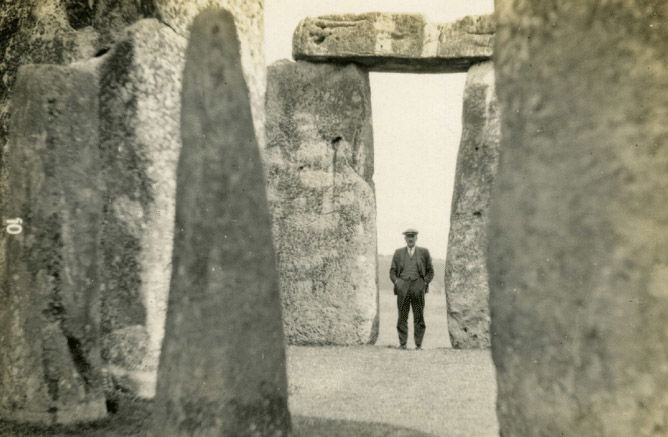On the Spot: Dan Hicks - 2 minutes read

Why are you a historian?
In fact, I’m a contemporary archaeologist with an anthropological sense of the past.
What’s the most important lesson history has taught you?
That anti-racism is more urgent than class war.
Which history book has had the greatest influence on you?
Aimé Césaire’s Discourse on Colonialism.
What book in your field should everyone read?
No such book has yet been written or ever will be. I have dozens of books on the go at any one time, focusing a good deal on the index and bibliography. It’s an approach I recommend to others.
Which moment would you most like to go back to?
The opening of ‘Room Nine’ at the second Pitt-Rivers Museum, 1899, where the Benin Bronzes and Ivories were displayed before they were dispersed.
Which historian has had the greatest influence on you?
William Edward Burghardt Du Bois.
Which person in history would you most like to have met?
André Breton.
How many languages do you have?
German and French, plus A- Level Latin and a grounding in Ancient Greek, for which I am grateful to Birmingham’s Bishop Vesey Grammar School.
What’s the most exciting field in history today?
African Cultural Restitution.
What historical topic have you changed your mind on?
Our work on the Calais ‘Jungle’ forced me to change my mind about freedom of movement.
Which genre of history do you like least?
I mistrust ‘Global History’.
Is there a major historical text you have not read?
Georg Forster’s A Voyage round the World in His Britannic Majesty’s Sloop Resolution.
What’s your favourite archive?
The archaeologist O.G.S. Crawford’s archive in Oxford.
What’s the best museum?
Regional museums are where it’s at: Manchester, Glasgow, Leeds, Belfast, Birmingham.
Normans or Anglo-Saxons? Brummies.
Rome or Athens? No contest, Paris or Berlin.
Braudel or Gibbon? Hannah Arendt.
Michelangelo or Frida Kahlo? Majid Adin.
What is the most common misconception about your field?
That archaeology works with frozen remnants of the past. It is the science of human duration.
What will future generations judge us most harshly for?
For allowing BP to art-wash their disaster-capitalist project in the ‘world culture’ galleries of the British Museum. For not returning the Benin Bronzes. But above all for not seeing how these two failures connect.